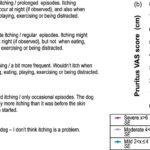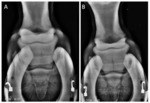
It is true that sometimes the authors of clinical research papers seem to overcomplicate their results, and work hard to make things harder to understand. This study is a perfect example, but is worth translating to normal English because of the benefits of PEA for inflammation.
https://www.frontiersin.org/journals/nutrition/articles/10.3389/fnut.2023.1143004/full
In a nutshell, one major finding is related to the knowledge that obesity and other metabolic disorders produce changes in the gut microbiota of mammals (humans, dogs, cats and mice).
This study shows that PEA (Palmitoylethanolamide) “reprograms” the mix of bacteria in the gut, resulting in less inflammation. Specifically, supplementing with PEA (in mice) increased that percentage of “good” bacteria and decreased the percentage of “bad” bacteria.
PEA also increased the production of butyrate (sounds like “butter” because it is similar) in the gut. Butyrate has a vital role in the gut – and has been found to have many benefits including reduction of obesity and insulin resistance. PEA supplementation turned on the genes in the gut of mice that produce butyrate as well as the genes that transport butyrate to where it is needed in the gut walls.
We have known for decades that PEA helps reduce chronic inflammation and pain. Now we know that PEA can also help improve your gut health by firstly changing the mixture of good and bad bacteria and secondly by increasing the effects of butyrate that helps repair the gut wall.
In one sense this now puts PEA as a useful supplement for any mammal with inflammation driven by obesity and insulin resistance. Perfect for your slightly overweight dog, cat or husband…
But seriously, if you need help with chronic pain and inflammation – consider supplementing with PEA. Remember that it can take weeks to reach a level in your body that is able to give relief. It is not fast acting. PEA is found naturally in all cells of mammals, mostly in the cell walls. PEA levels are lower after periods of ongoing (chronic) processes that produce inflammation and pain – and supplementation appears to help after the doses have built back up.
PEA is tasteless, odourless and can be sprinkled on top of your pet’s food for easy administration.





